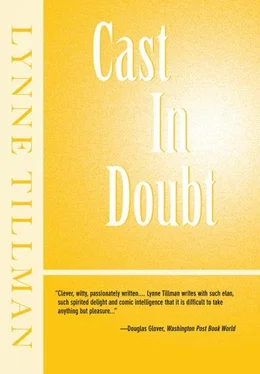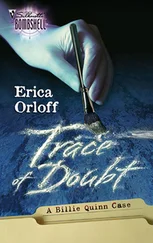I open a New York Times that Gwen, my best friend in Manhattan, mailed months ago by boat, along with other magazines and clippings, news items culled from diverse sources. Watergate is dragging on even now; Nixon is supposedly anguished about the men who were sentenced. President Ford, who pardoned him, has formed a commission to investigate the CIA’s spying on citizens, domestically, under Nixon’s administration. It is vile. I find Ford’s naming Nelson Rockefeller as the commission’s chairman entirely dubious, even though he is Vice President. I’ve always disliked Rockefeller. The story goes — Alicia told me this — that years ago he was at a meeting with some of his employees, and one of them mentioned “take-home pay.” Rockefeller asked, What is take-home pay? And this man became governor of the state of New York. And then there was Attica. A horrible man. A small item catches my attention. A man has been found strangled in his Upper East Side apartment — no sign of struggle, no forced entry, no robbery. There is a story there. I clip the article and put it into my story file.
Tea with Alicia tomorrow. A drive with Helen today. It’s all right that I’m not working. I can take the weekend off, and if I don’t drink much at dinner, I might get something done tonight. What does Alicia want to chat about? Wouldn’t it be strange if Helen were Alicia’s given-up-for-adoption child? There was one, years and years back, I am almost certain of that. Perhaps this is why Alicia dislikes Helen. She might be her child, the child that represents a rebuke to Alicia, and Alicia may be more like a mother cat than a human being who, finished with the child/kitten, wants nothing more to do with her. Helen has never mentioned her mother. Never her family, not really, now that I think of it, maybe something about her parents once, the source of many of her problems. Of course. I am so glad not to have children and not to be a father. Except to Yannis but that is different. I don’t even know if Helen has siblings. I’ll try to ask her this afternoon.
Helen is wearing leather flats, with slippery soles, and the shoes are entirely unsuitable for climbing. In some ways she has no sense. But I say nothing to her when she gets into my car. Yannis has stayed home. So be it. He’s in a bad mood. Helen is less than talkative, and to draw her out, I ramble on about Roger. He is, I tell her, no bon vivant. He’s not rich enough. His Greek is better than passable and he lords that over the passersby, the tourists, to make himself a bigger Roger. She asks if I like him at all. I love Roger, I say, surprised. He is like a brother to me. This is not precisely the truth, and as I don’t particularly like my own brother, nor have I actually ever felt that any other man was one, in the spiritual sense, I am dissembling. Or, as they say, lying through my teeth. But why do I? I want Helen to think I am a good person, I suppose. I don’t want her to know that I can be mean, even monstrous. I’d like her to think I am above all manner of pettiness. But obviously, since she thinks I hate Roger, she has already discovered the truth, or part of it. I sense she has already known bad people, evil ones. Why else would she have such an enigmatic smile and be so uneasy with her laugh, clapping her hand over her mouth just as she begins to chortle. Not chortle. I don’t know what to call it.
She’s looking out the window now. The donkeys dot the rough landscape. The women who walk on the side of the dirt road and whom we pass rapidly, though I drive slowly, are wearing black and carrying bundles, faggots, on their backs, as if they too were donkeys. Beasts of burden. They are solid women, of the earth, whom young Helen must view with as much sense of mystery as I. I ask her, Do you have anything in common with these women? She tells me that she has made contact with a Gypsy, a woman who recently came into our town. Contact? I wonder aloud. Daily, they pass each other near the baker’s shop. And they stare at, Helen says, look at each other. The Gypsy knows something about her, Helen thinks, and she knows something about the Gypsy. That sounds mystical, Helen, I didn’t suspect you went in for that sort of thing. She smiles and claims that she doesn’t.
How Helen’s young skin glows! It is so clear and clean, unsullied, without a sign of adolescent disruption. A smooth, cool surface. I had terrible skin as a boy and always thought it had to do with evil thoughts or how I reached for my secret part much too often, to stroke it and comfort myself and bring myself to what pleasure I could. My dog, I called it, because I wasn’t allowed to have one. Will you lick my dog? I once asked Yannis. I was drunk, of course. Nowadays people are much more liberal about masturbation, but all of us then were in desperate conflict about its odious consequences.
Helen is clear and clean. Her dark-brown, nearly black, hair stops just short of her chin and is thick and straight, and her hazel eyes are sometimes more green than brown, even yellow, like her cat Maybelline’s. Her sunglasses — black frames, dark-green lens — perch on the middle of her nose and just now she reminds me of Jean Seberg, as visited by Monica Vitti. I must keep my eyes on the road. I don’t need to look at Helen, she is my tabula rasa. There is absolutely no reason in the world for my feelings for her, but somehow I identify with her completely and feel her as if she lived inside me. It is so odd. My fascination with her is deeper than for the octopus lying, dying, on the wharf. I shoot a glance at her from the corner of my eye, as if she knew how I was comparing her — let me count the ways! Were she to hear my thoughts, would she laugh or be insulted? Would she care at all?
Perhaps she is something like the girls I went to school with who terrified me with their self-possession and indifference, but in those days they did not hang out in discos or nightclubs or spend nights with men in bars or take men back to their apartments and make love with them. I guess some did but I didn’t know them. Helen makes casual remarks, now and then, about such events, as if they were only in the past and did not enter her life here, as I know they do, as I know men enter her life, enter her door, enter her. Have you any siblings? I ask. Yes, she answers, but then states that she doesn’t really like to talk about her family. I’m sorry, I say.
There’s a boring silence and she looks out the window again. I feel I have done something terribly wrong. Or she has done something terribly wrong. But what could that be? Finally she insists that we should just forget it, or drop it, as she puts it, because it doesn’t matter. She doesn’t want to think about the past. It’s bad for her. “Bad for me, Horace.” She pronounces my name in two distinct syllables, for emphasis. I love it when she uses my name. From her lips it sounds like an interesting one.
To mollify me, she tells me that she dropped out of college in her second semester, which is indeed precocious, I remark, but she continues as if I hadn’t said that. Then, in New York, she worked as an artist’s model, posing nude four times a week, three hours each sitting, for students from an art school and also for some private classes. Helen frequented clubs and bars all during that time — Max’s especially. She dyed her hair orange, wore flat white powder on her face, and painted dark red lipstick on her naturally blush pink lips. She acquired a series of musician boyfriends who had apartments; she lived with each for about a month, until it wasn’t cool anymore, as she puts it. But, she states definitively, she’d never do it for money. I am slightly shocked, to hear that she might even consider doing it for money. She’s not romantic, she admits, which I can almost grasp, though it’s difficult to accept from one so young and, in a way, delicate. She is in another league altogether. I think of that — other leagues and other clubs. Twenty thousand leagues under the sea dwell those fascinating and grotesque octopuses. Why do they disgust me so? Has she read Jules Verne? I think not.
Читать дальше












